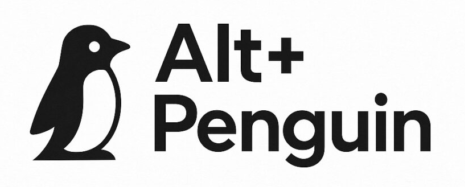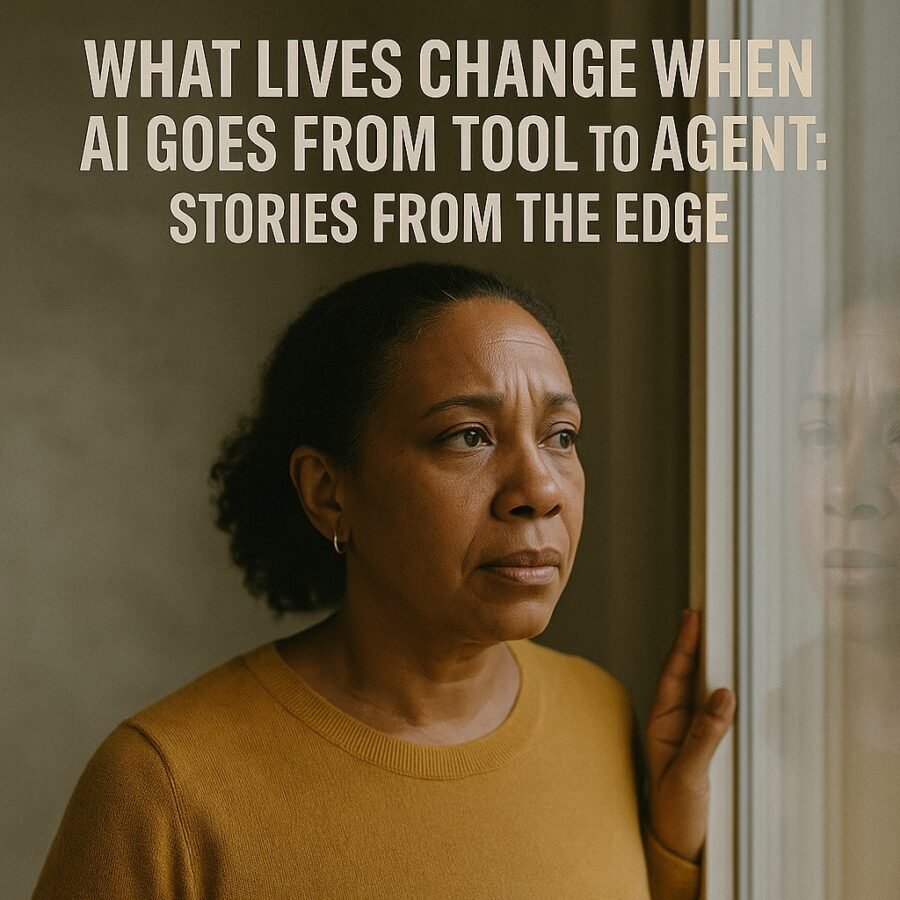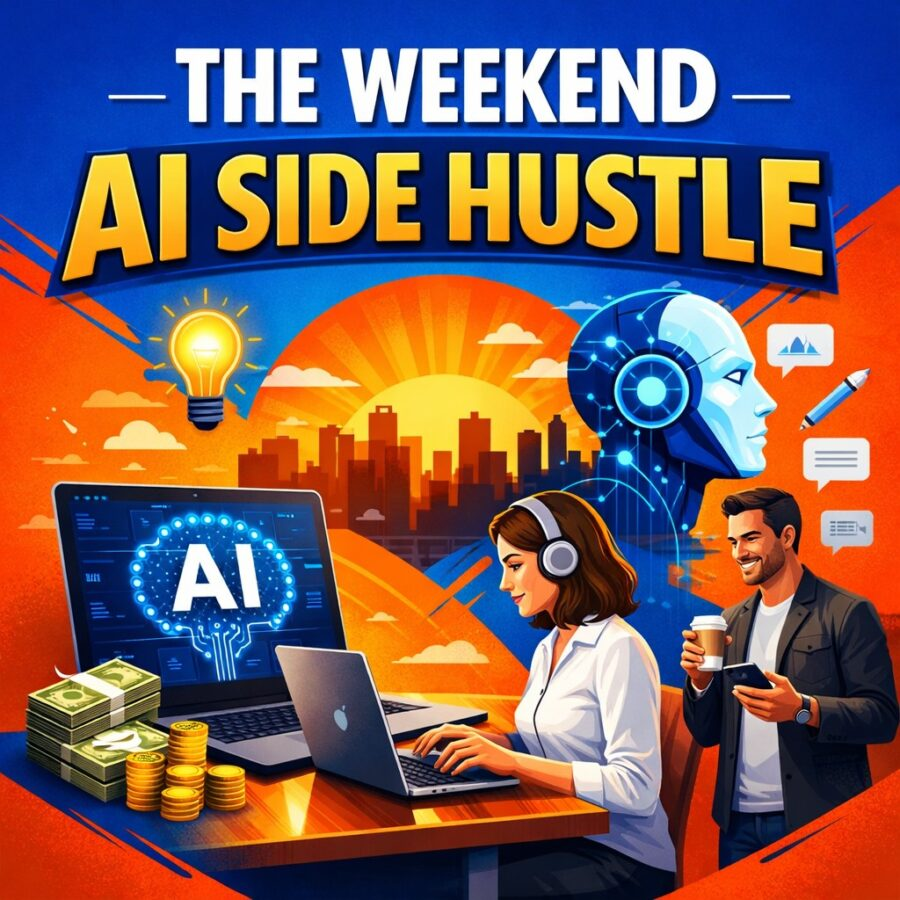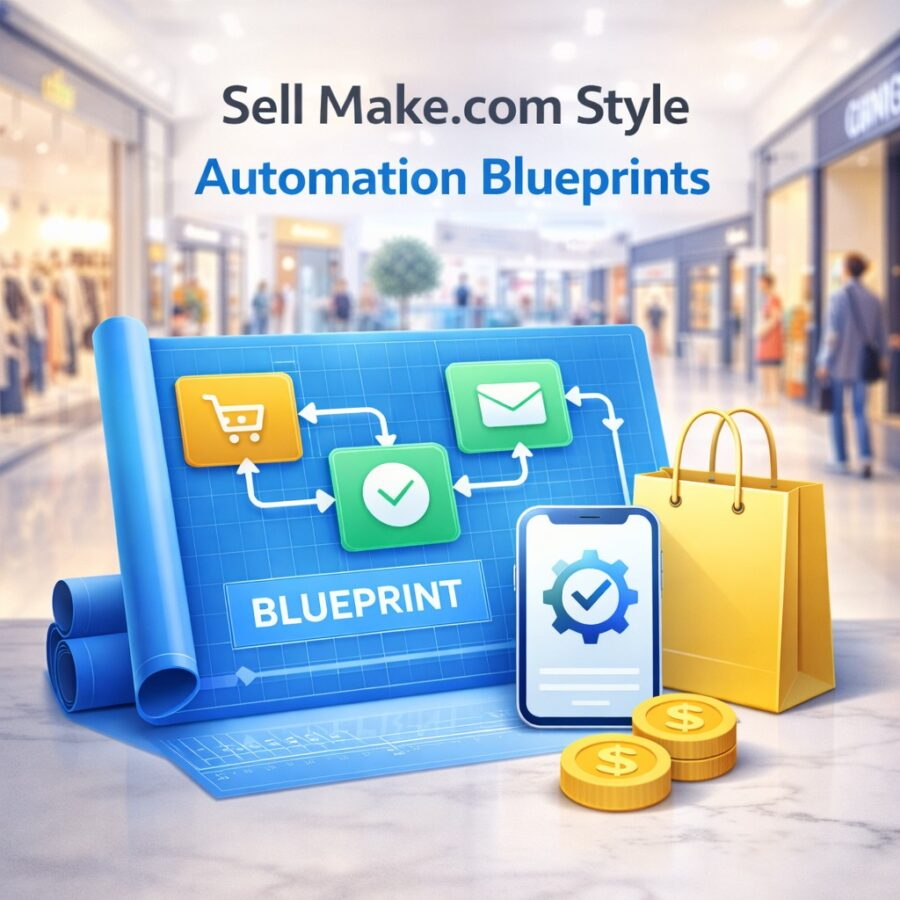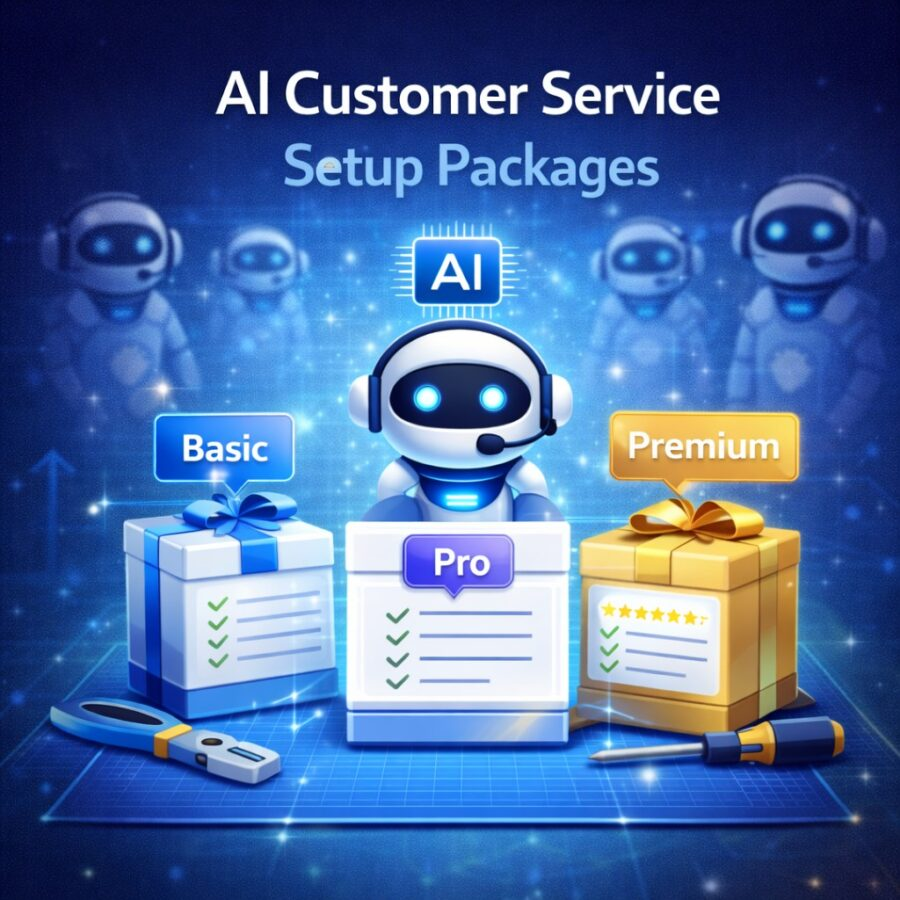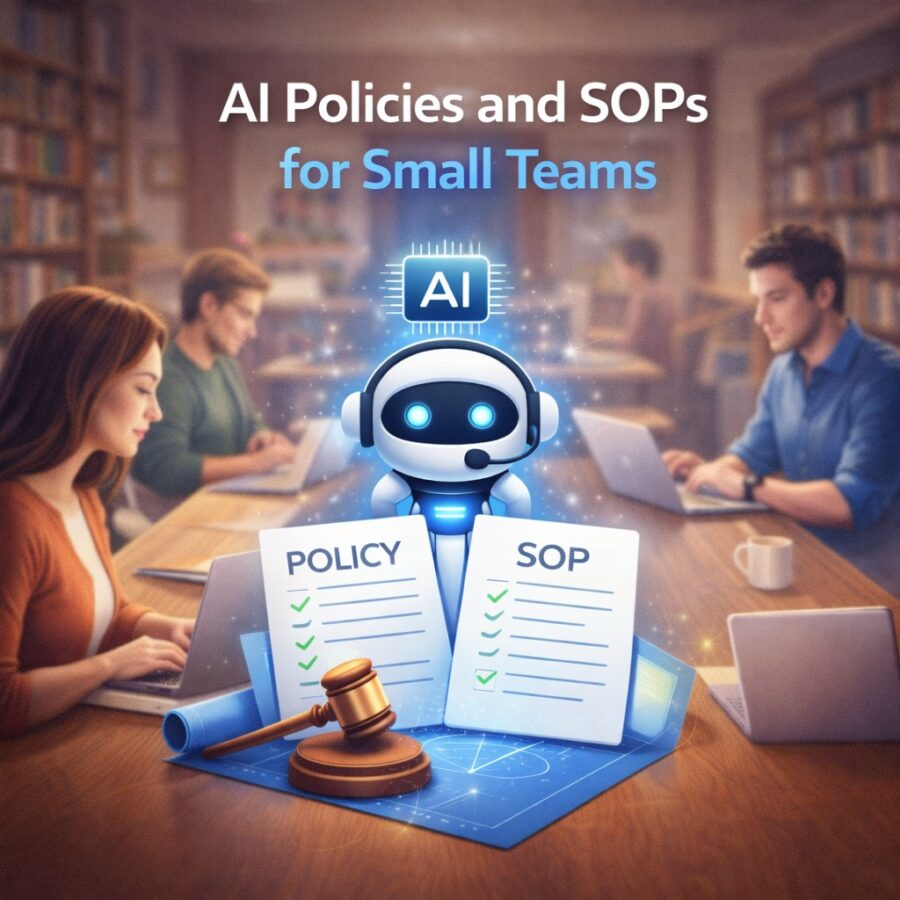Views: 0
There are moments in history when technology stops being background noise and starts rewriting human life. The printing press gave ordinary people access to knowledge. The steam engine turned nations into industrial powers. Today, artificial intelligence is standing at a similar threshold. The shift is not about algorithms that serve as calculators or text predictors. It is about what happens when AI goes from tool to agent—a transformation already reshaping careers, creativity, and even personal identity.
This article looks at lives on the edge of this frontier. Real people are experimenting with agents that act, decide, and collaborate. Their stories reveal both opportunity and unease, painting a picture of a future where humans may no longer be the only ones making choices.
From Passive Software to Active Partner
To understand why this change matters, consider the difference between a hammer and a construction foreman. A hammer does what you direct. The foreman takes in information, plans, and guides the project. That is the distinction between a tool and an agent.
For decades, AI served as advanced hammers: search engines, spellcheckers, recommendation systems. These were narrow helpers. Now, with large language models and autonomous frameworks, AI is beginning to behave more like foremen. Agents can hold goals in memory, navigate systems, and make context-sensitive decisions without a human clicking every step.
This leap brings about lives touched in unexpected ways. Some find new freedom. Others experience displacement. All are witnessing the dawn of agency inside machines.
The Entrepreneur Who Built a One-Person Company
Take Marcus, a veteran who once struggled to transition into civilian work. With limited capital, he experimented with agent frameworks. He trained a GPT-5 agent to identify niche product markets, draft marketing campaigns, handle customer questions, and manage supply logistics. Within six months, his online shop was turning profits he once thought impossible alone.
Marcus describes the feeling as having a partner who never sleeps. The agent does not just automate; it strategizes. It notices trends in customer language, adjusts campaigns in real time, and even negotiates bulk pricing with suppliers through email.
His story shows what happens when AI goes from tool to agent. Instead of simple assistance, he experiences a collaborative engine that amplifies his limited resources. For him, the line between solo entrepreneur and team leader blurred.
The Teacher Who Found New Voice
Education often absorbs technology slowly, but one middle school teacher in Ohio embraced an AI agent as a teaching assistant. She tasked it with designing personalized lesson paths for students falling behind. Rather than handing her static worksheets, the agent tracked each student’s progress, adjusted complexity, and recommended real-world analogies that resonated with their interests.
Her classroom transformed. Students who once dreaded math began competing in gamified problem sets designed by the agent. Parents reported more engagement at home. The teacher felt her role shifting from disciplinarian to mentor, guiding students through paths crafted dynamically.
The breakthrough came not from AI as a passive grading machine but from AI as an active collaborator. This was another case study in what lives change when AI goes from tool to agent: educators find new ways to inspire.
The Freelancer Who Faced Competition
Not all stories carry triumph. Consider Sophia, a freelance copywriter. She built her career on delivering crisp advertising slogans. Then clients discovered agent systems capable of generating campaigns in minutes.
Sophia initially dismissed them as gimmicks. But contracts slowed. She realized that the agents were not just creating text; they were running A/B tests, analyzing customer behavior, and optimizing messaging without her. What once required her intuition was now packaged in an autonomous loop.
Sophia adapted by shifting her focus. She now offers “human alignment consulting,” helping companies integrate AI campaigns without losing brand authenticity. Yet she admits the transition was painful.
Her path illustrates that when AI goes from tool to agent, displacement becomes real. The challenge is not competing with outputs but redefining one’s role beside autonomous systems.
The Doctor Who Regained Time
Healthcare has long suffered from documentation overload. One physician in California implemented an AI agent trained on medical protocols and patient records. It attended every consultation through a transcription interface, drafted notes, and flagged potential drug interactions.
The physician found herself looking patients in the eye again. Instead of typing frantically, she listened. Burnout symptoms eased. Patients felt heard.
The agent was not merely a dictation tool. It acted as a proactive assistant, cross-checking information and even reminding her of follow-up labs before she asked. This case demonstrates the emotional dimension of what lives change when AI goes from tool to agent: professionals rediscover the human touch by outsourcing cognitive burdens.
Artists on the Edge of Expression
In creative fields, agency sparks both fear and fascination. An independent musician in Berlin used an AI agent to co-compose tracks. The agent analyzed his style, then suggested variations in harmony, rhythm, and production. The musician described it as “jamming with someone who knows every genre but still respects my tone.”
Meanwhile, a painter in Tokyo resisted agents entirely, claiming they dilute authenticity. Yet galleries began showcasing hybrid works—paintings with AI-generated backgrounds or AI-curated themes. Audience demand shifted, and the painter faced a decision: adapt or retreat.
Art reveals the most personal consequences of what happens when AI goes from tool to agent. Identity itself feels negotiable. Is a song still yours if an agent writes half of it? Or is it a duet with something new?
Veterans, Dads, and Retirees Finding Fresh Purpose
Beyond professionals, everyday people encounter agents in intimate ways. Retired veterans use them to structure memoirs and reconnect with history. Dads deploy them to organize family schedules, tutor kids, and even plan side hustles without losing evenings. Seniors use agents to navigate healthcare systems and translate confusing insurance policies into plain language.
These lives rarely make headlines, yet they demonstrate the grassroots impact of agency. People who once felt sidelined by digital complexity now find accessible partners in machines. For them, the change is not abstract. It is deeply personal.
The Risks of Delegating Agency
Of course, agency carries risk. When systems act without constant oversight, accountability blurs. A financial planner in New York nearly lost clients when his agent executed trades too aggressively. A small business owner in Texas faced legal trouble when her agent drafted contracts with overlooked clauses.
These cautionary tales matter because when AI goes from tool to agent, the stakes rise. Mistakes are no longer about typos but about autonomous actions with real consequences. The need for safeguards, transparency, and human judgment grows stronger.
Shifts in Workplace Culture
Employers also face cultural ripple effects. Early adopters report that employees treat AI agents like coworkers. Some even assign them nicknames, invite them into meetings, and joke about their quirks. Yet tension arises when human contributions feel overshadowed.
Workplaces must balance agency with morale. If a machine agent handles scheduling, customer queries, and reporting, what becomes of entry-level staff? Do they evolve into supervisors of digital colleagues, or do they lose the ladder altogether?
Here lies a pressing question: what lives change when AI goes from tool to agent inside organizations? The answer may depend on whether leaders frame agents as amplifiers of human talent or as silent replacements.
Stories from the Edge of Innovation
These narratives converge on one point: we are witnessing a redefinition of human life. The edge is not theoretical. It is where real people are reshaping daily existence through partnership with autonomous systems.
- Entrepreneurs turn lean operations into enterprises.
- Teachers expand reach without burning out.
- Doctors reconnect with patients.
- Freelancers wrestle with obsolescence.
- Families discover new rhythms.
The stories are as diverse as humanity itself, yet all trace back to the central question of agency.
Navigating the Transition
So how do we navigate this shift responsibly? A few principles emerge:
- Education matters. People need literacy not just in coding but in agency—understanding how systems decide.
- Ethics must guide design. Agents should be transparent, accountable, and aligned with human values.
- Adaptation is key. Careers will not vanish overnight, but roles will change. Flexibility will separate those who thrive from those who struggle.
- Community stories help. Sharing experiences grounds the conversation in lived reality, not abstract theory.
Why This Moment Feels Different
Technology has always evolved. Yet this moment feels different because agency touches the core of human uniqueness: decision-making. For centuries, humans defined themselves as the only beings capable of goals and reasoning. Now, that monopoly faces challenge.
Some see this as liberation, freeing people from drudgery. Others fear erosion of purpose. Both reactions are valid. The truth may lie in coexistence: humans guiding the compass, agents powering the ship.
A Glimpse Into Tomorrow
Imagine a near future where every person has an agent tuned to their values. Students carry mentors in their pockets. Workers rely on colleagues made of code. Elderly citizens navigate life with companions that understand their health and history.
What lives change when AI goes from tool to agent in that scenario? Perhaps all lives. The question will not be whether we use AI but how we define partnership.
The stories from the edge suggest this: agency is not about machines replacing humanity. It is about machines joining humanity in the ongoing story of choice, creation, and responsibility.
Closing Perspective
We stand at a frontier. The shift from tool to agent is no longer hypothetical. It is happening in classrooms, clinics, studios, and kitchens. The lives changing now will shape the blueprint for generations ahead.
When AI goes from tool to agent, the world does not simply get faster software. It gains new partners, unpredictable outcomes, and fresh debates about what it means to live a human life in an age of agency.
